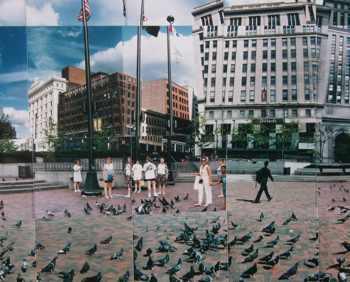


If they were given the chance, Japanese Americans and Japanese Canadians would have worked extra hard with other Americans and Canadians for their respective governments’ war effort. “They could have left their ethnic Japanese population alone, because they were under strict governmental surveillance since before the war anyway. When asked about the internment/incarceration options that both the Canadian and US governments had in 1942, Izumi elaborated on how they worked: They are both about a child’s death, but of a different kind.”

It’s not like, a bomb falls on your head and you’re burnt alive or blasted into pieces, but you’re told that you shouldn’t exist as who you are because being a ‘Japanese’ is a bad thing. “It is more difficult to understand how the uprooting and losses impacted, for example, Naomi Nakane in Obasan, because the story is about you being alive but having your very existence delegitimized. So, in a way, the stories about children in Asia and Europe, where the war was actually fought, have a more direct impact when you read them. I also read books about Korean children during World War II and children in the Vietnam War. “As a Japanese, I grew up reading a lot of stories about people’s experiences during World War II, like The Diary of Anne Frank, Barefoot Gen, and Neko wa Ikite Iru (The Cats Survive), which is a story about the 3.9 Tokyo Air Raid that killed over 80,000 people in one night. It took Izumi some time to understand the scale of the losses that Japanese Americans and Japanese Canadians had to bear, she continues: I didn’t know about the Canadian internment/incarceration, until I read Toyo Takata’s Nikkei Legacy and Joy Kogawa’s Obasan after I started studying Japanese Canadian history.”

The family in the US had to go to Manzanar. The story was about a Japanese American family, and in the story, one brother joined the US Army and his younger brother joined the Japanese Army. “I saw the NHK TV drama titled Sanga Moyu, a drama based on Toyoko Yamazaki’s novel, Futatsu no Sokoku. Izumi first learned about the Japanese American incarceration experience in 1984:


 0 kommentar(er)
0 kommentar(er)
